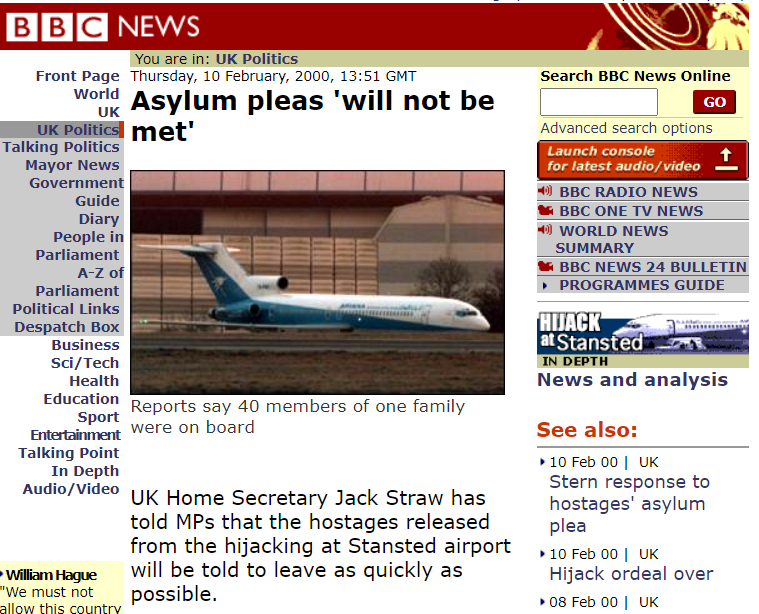
Really interesting piece in tomorrow's Observer on Labour's potential support base 🧵 1/n
"Of those [open to voting Labour], 27% voted Conservative, 17% voted Lib Dem, 3% voted Green and 5% voted for other parties. (The rest did not vote.)"
theguardian.com/politics/2021/…
"Of those [open to voting Labour], 27% voted Conservative, 17% voted Lib Dem, 3% voted Green and 5% voted for other parties. (The rest did not vote.)"
theguardian.com/politics/2021/…
Right so, of those open to voting Labour, 48% did not vote in 2019.
So why target soft Tories, and not non-voters?
The piece argues: "When the group is adjusted for its likelihood to vote, soft Tory supporters account for 43% of the group"
2/n
So why target soft Tories, and not non-voters?
The piece argues: "When the group is adjusted for its likelihood to vote, soft Tory supporters account for 43% of the group"
2/n
But here's the difference. Non-voters require a different strategy. They haven't voted, so you have to inspire them.
As I argued in this piece a month ago "electoral strategy isn't a value-free science", it depends on the coalition you want to build
3/n
theguardian.com/commentisfree/…
As I argued in this piece a month ago "electoral strategy isn't a value-free science", it depends on the coalition you want to build
3/n
theguardian.com/commentisfree/…
This research was commissioned by "the Progressive Britain group, which sits on the right of the Labour party"
"The Conservative voters Labour needs to win over are particularly upset about the way [Starmer] has opposed the government in recent months"
4/n
"The Conservative voters Labour needs to win over are particularly upset about the way [Starmer] has opposed the government in recent months"
4/n
The piece also says: "Some senior figures were also deeply frustrated by an interview by Ed Miliband last week, in which he recommitted the party to the renationalisation of key utilities"
Implication being: dump public ownership to win 'soft Tories'
5/n
Implication being: dump public ownership to win 'soft Tories'
5/n
But as @We_OwnIt point out:
"A majority of Tory voters want public ownership of rail and water. Between 2017 and 2019, support for public ownership increased."
Leaving aside, what Keir Starmer himself pledged ...
6/n
"A majority of Tory voters want public ownership of rail and water. Between 2017 and 2019, support for public ownership increased."
Leaving aside, what Keir Starmer himself pledged ...
6/n

What else might they want to dump?
Possibly @jreynoldsMP campaign to #CanceltheCut to Universal Credit?
"Labour needed to be more on the side of those "in work" and not just those "on welfare", we are told.
It seems some want to revert to
7/n
Possibly @jreynoldsMP campaign to #CanceltheCut to Universal Credit?
"Labour needed to be more on the side of those "in work" and not just those "on welfare", we are told.
It seems some want to revert to
7/n

"The analysis, which included focus groups on the party’s performance under Starmer, said that the party had to do more to change its image with voters over the key issues of welfare, crime and the economy"
I think we know the implications of where that leads on those issues
8/n
I think we know the implications of where that leads on those issues
8/n
And this is the problem with focus groups (I say this as a trained and experienced focus group facilitator)
Focus groups, like opinion polls, tell you where public opinion is at. They can be very useful for testing your arguments or messages.
They don't tell you what to do.
9/n
Focus groups, like opinion polls, tell you where public opinion is at. They can be very useful for testing your arguments or messages.
They don't tell you what to do.
9/n
For that you need a political vision and a strategy to get there.
So back to the opening point, who to prioritise:
"Of those [open to voting Labour], 27% voted Conservative, 17% voted Lib Dem, 3% voted Green and 5% voted for other parties. (The rest did not vote [48%])
10/n
So back to the opening point, who to prioritise:
"Of those [open to voting Labour], 27% voted Conservative, 17% voted Lib Dem, 3% voted Green and 5% voted for other parties. (The rest did not vote [48%])
10/n
The researchers point out:
"winning a vote from a main opponent counts twice, as it is one fewer for them and one more for Labour"
So they'd argue the 27% of Tories is actually more than the 48% of non-voters. But what does the strategy of winning them do?
11/n
"winning a vote from a main opponent counts twice, as it is one fewer for them and one more for Labour"
So they'd argue the 27% of Tories is actually more than the 48% of non-voters. But what does the strategy of winning them do?
11/n
I'd argue that the strategy for winning over non-voters is also likely to be akin to the strategy for winning 18-21 year olds who couldn't vote in 2019 - and for winning over Greens, some Lib Dems, and for holding Labour's existing voters.
12/n
12/n
And I'd further argue that shifting right on issues like the economy and welfare (to win soft Tories) might lose Labour some of its existing base, while - as in 2015 general election - ultimately soft Tories will prefer the full fat right wing option on welfare, crime, etc
13/n
13/n
Finally, the @LabourTogether review into the 2019 election came to similar conclusions, and was assumed by many to be accepted by Keir Starmer
It said "Policy that is radical and inspires people to believe we can deliver real change is vital"
Read in full docs.labourtogether.uk/Labour%20Toget…
It said "Policy that is radical and inspires people to believe we can deliver real change is vital"
Read in full docs.labourtogether.uk/Labour%20Toget…
• • •
Missing some Tweet in this thread? You can try to
force a refresh









